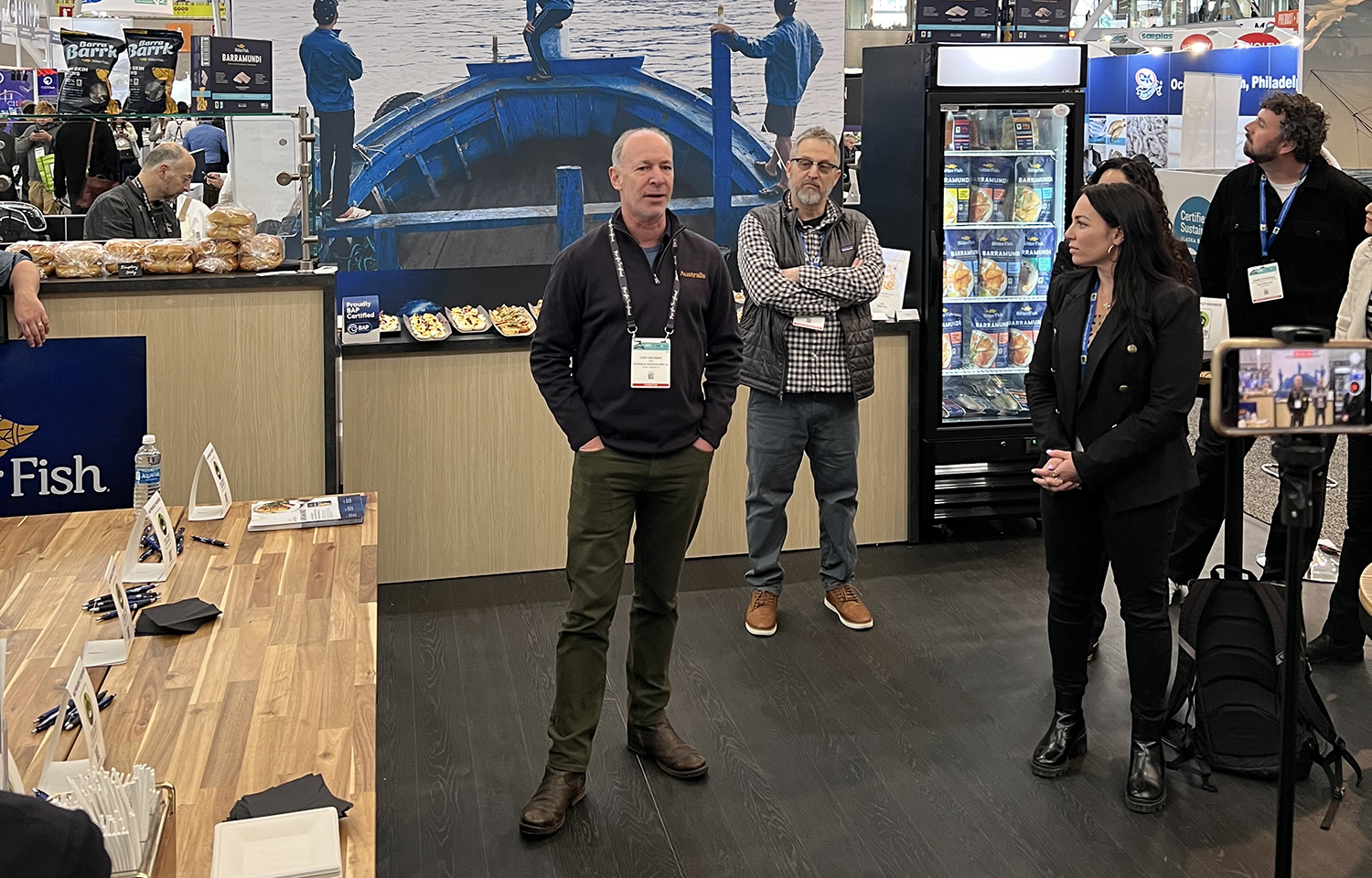Greenfield, Massachusetts, U.S.A.-based barramundi producer Australis Aquaculture recently celebrated three years of partnership between its The Better Fish brand and the Fair Trade USA Certification, representing one of the latter organization’s first aquaculture partnerships.
Fair Trade USA focuses on building and promoting responsible business and conscious consumerism, with the ultimate goal of eliminating poverty. While relatively new to seafood in general, let alone aquaculture, the certification body saw an opportunity to promote its mission in seafood through partnerships like the one it has established with Australis, which is in the process of expanding its barramundi farming operations in Vietnam.
“The way we look at new supply chains to get into is looking at what the market needs are and how we can drive real impact and change. There was a large focus already on environmental and stock guidance in seafood, but there wasn’t really a solution on how to address the people side,” Fair Trade Senior Retail Partnerships Director Abby Ayers said. “We started in wild-caught, small-scale fisheries, but once we implemented that program, we soon saw the opportunity in aquaculture, which we already had experience with working in other farmed products.”
With labor issues remaining prevalent in the seafood industry, establishing a partnership with Fair Trade allows brands to increase consumer confidence, especially as 67 percent of consumers recognize the Fair Trade certification logo, according to Ayers. Australis Aquaculture CEO and Founder Josh Goldman agreed.
“I don’t see consumers asking for it necessarily, but I think it’s an enhancement to the brand and to consumer confidence in what we do,” Goldman said at a barramundi tasting his company hosted at the 2024 Seafood Expo North America to celebrate the partnership.
The full line of The Better Fish products, which includes fried barramundi tenders and skinless and skin-on barramundi fillets in various flavors, is Fair Trade-certified. The company’s farm in Vietnam, where its barramundi is grown, is also the first fish farm in Asia to claim such certification.
“So many of our buyers have not had the opportunity to go to a fishery and see a farm, so understanding what that looks like and the challenges farmers face can provide more transparency and bring the consumer closer to the supply chain,” Ayers said.
As the convenience market at retail continues to grow, Australis is looking to add a line of skinpack barramundi products soon that will carry Fair Trade certification, and the company has also recently announced the launch of Barra Bark pet treats, which are the result of sustainable fish skin upcycling and are also Fair Trade-certified.
“It took a couple years under development to do all the market research and figure out the brand positioning,” he said regarding the pet treats, adding that it’s the company’s first foray into the pet food space.
Concerning the near future for Fair Trade, Ayers said the certification body is turning its focus to global markets, ensuring its partnerships align with emerging consumer trends.
“We’ve primarily been focused on the North American market, but we are going to be expanding globally … with retailers in France, the U.K., and Switzerland,” she said. “We’re also going to continue following the market, so as new species become important to consumers, we’ll continue to expand the availability of those species as certified products.”








